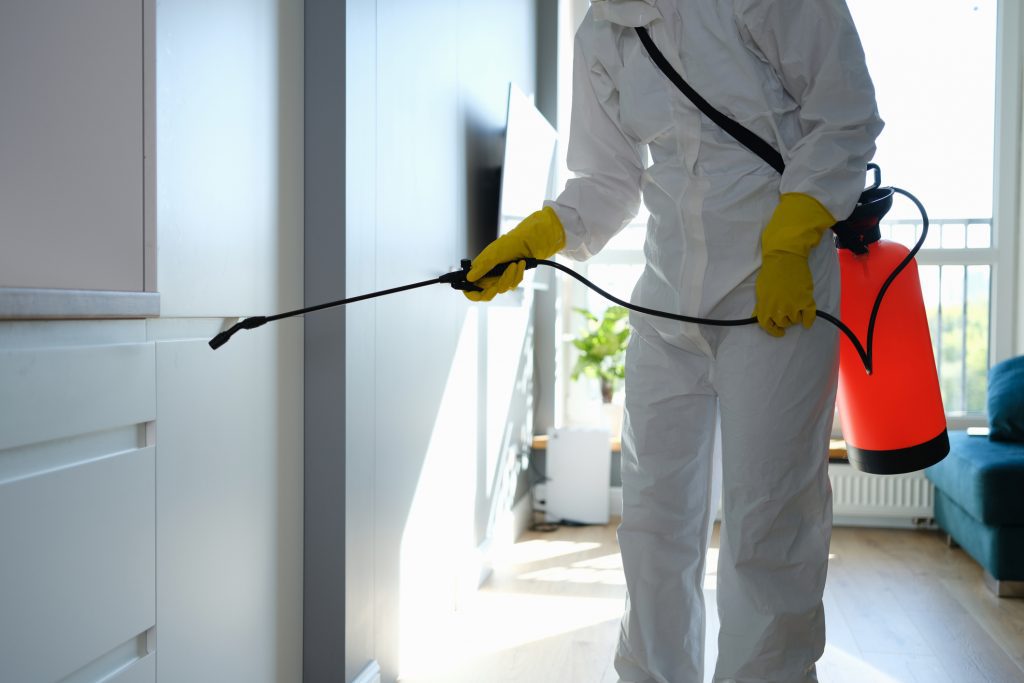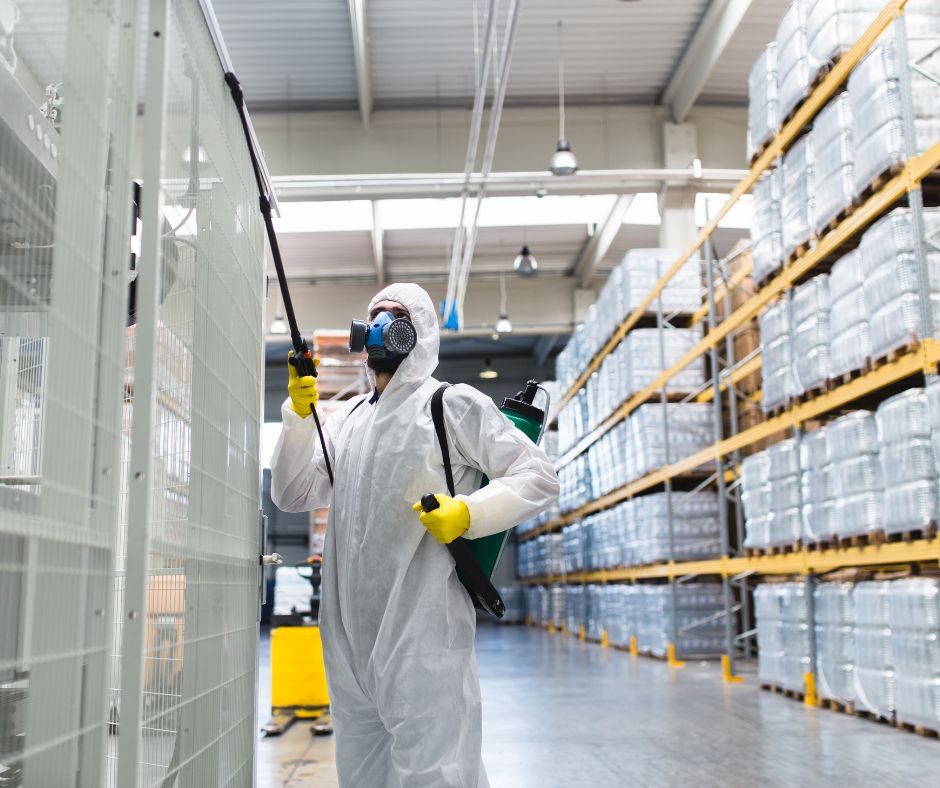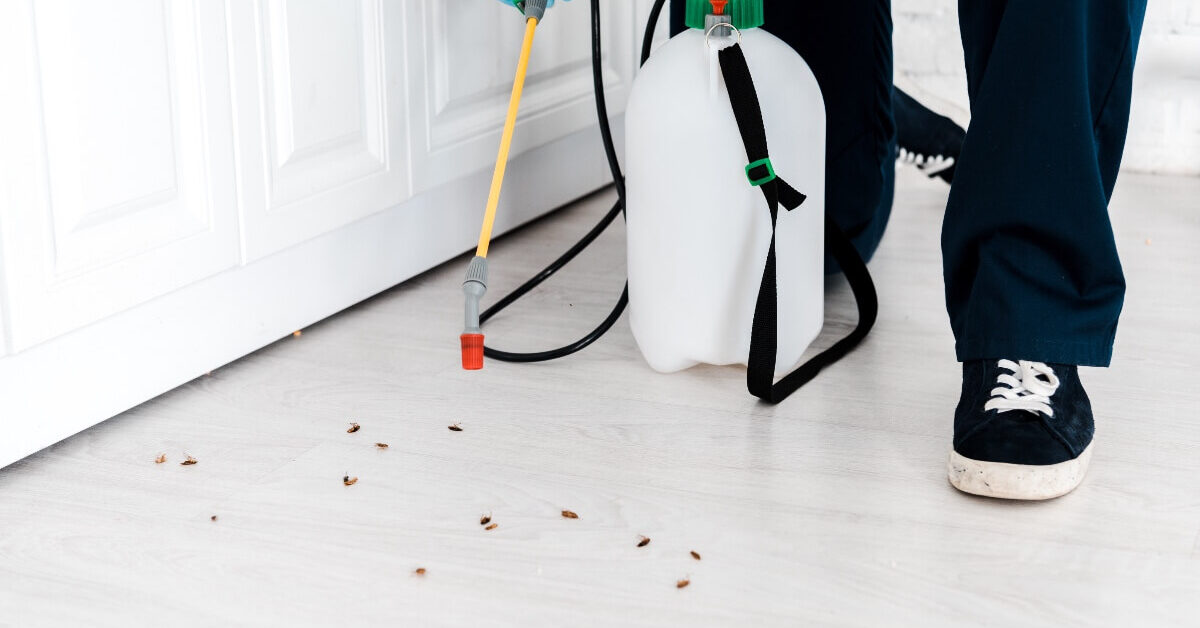Ant Exterminator Near Me: How to Exterminate Ants Swiftly and Successfully
Discover the Significance of Insect Control in Maintaining a Healthy And Balanced Setting and Treatment Techniques

The Role of Parasites in Ecological Communities
Insects, often watched exclusively as nuisances, play a multifaceted role in ecosystems that is essential for preserving environmental equilibrium. They add substantially to various eco-friendly procedures, including pollination, nutrient biking, and insect control. Numerous insect varieties, such as butterflies and bees, are vital pollinators for a vast range of plants, which in turn supports biodiversity and food manufacturing.
In addition, parasites act as target for many predators, producing a crucial link in food internet. This interdependence guarantees the survival of numerous species and helps manage populations within communities (Termite treatment Port Charlotte). Moreover, decomposer bugs, such as particular beetles and fungis, are crucial in damaging down organic issue, thus enriching dirt and helping with nutrition recycling.
On the other hand, while bugs can be valuable, their overpopulation or intrusion into non-native environments may disrupt these eco-friendly features. This complexity underscores the importance of recognizing parasite dynamics, as effective insect monitoring methods need to take into consideration both their environmental roles and potential effect on human activities. Balancing pest existence while reducing harm is essential for protecting the integrity of ecosystems and making certain agricultural productivity.
Health And Wellness Risks Connected With Parasites
The existence of pests in different environments prolongs beyond their environmental roles, as they likewise pose substantial health threats to humans and pets. Many bugs, including parasites, rodents, and pests, are carriers of illness that can have serious health and wellness implications. As an example, rats are known to transfer hantavirus and leptospirosis, both of which can cause extreme respiratory and kidney concerns, respectively.
Insects such as ticks and mosquitoes are notorious for spreading out vector-borne conditions like jungle fever, dengue high temperature, and Lyme disease. These diseases can lead to high morbidity and death rates, especially in at risk populaces. Additionally, parasites like bedbugs and cockroaches can worsen allergic reactions and bronchial asthma, adding to respiratory problems in individuals, especially those with pre-existing conditions.
Additionally, the existence of bugs can cause emotional stress and anxiety and pain, impacting total well-being. Contamination of food and surfaces by pest droppings and remains can result in foodborne ailments, highlighting the relevance of keeping hygienic problems. Consequently, recognizing the wellness dangers connected with insects is important in acknowledging the requirement of effective pest monitoring approaches to protect animal and human health and wellness.

Benefits of Effective Insect Control
Efficient insect control is necessary for keeping a secure and healthy and balanced setting, as it continually minimizes the countless threats related to parasite problems. Among the key advantages of efficient insect administration is the reduction of wellness dangers. Bugs such as mosquitoes, rats, and roaches are vectors for diseases that can impact both pets and people. By managing these populaces, the chance of condition transmission is considerably reduced.
Additionally, reliable insect control safeguards home and structures from damages. Numerous pests, like termites and carpenter ants, can cause considerable structural damages that may need expensive fixings. By proactively handling these invasions, businesses and house owners can safeguard their financial investments.
Another significant advantage is the renovation of overall lifestyle. A pest-free setting adds to psychological wellness and minimizes stress and anxiety associated with invasions. Moreover, reliable parasite control cultivates a safer environment for children and animals, making sure go to the website that homes continue to be refuges without hazardous chemicals and disease-causing organisms.
Common Pest Control Strategies

In the world of insect monitoring, different techniques are utilized to combat problems efficiently. These strategies can be extensively classified into 3 primary approaches: social, mechanical, and chemical controls.
Cultural control entails customizing practices to reduce bug survival, reproduction, and facility. This may consist of crop rotation, correct sanitation, and environment manipulation, which jointly develop an atmosphere much less conducive to pest spreading.
Mechanical control uses physical methods to get rid basics of bugs (Termite treatment Port Charlotte). Strategies such as barriers, vacuums, and traps are generally used to directly remove insects from an area. This technique is specifically reliable for taking care of rats and pests without making use of harmful chemicals
Chemical control involves the application of chemicals to take care of parasites. These materials can be classified right into fungicides, insecticides, and herbicides, each targeting specific kinds of pests. It is crucial to make use of these chemicals deliberately, sticking to security standards and guidelines to lessen prospective damage to non-target types and the environment.
Each insect control method has its restrictions and benefits, and commonly, an incorporated technique incorporating several approaches yields the most effective results in preserving a pest-free atmosphere.
Sustainable Insect Management Practices
Sustainable bug administration practices incorporate a variety of methods created to reduce environmental effect while successfully regulating pest populations. These practices prioritize making use of ecologically pleasant methods over chemical pesticides, consequently decreasing the threat of harm to non-target types, including helpful insects, wildlife, and human beings.
Integrated Bug Monitoring (IPM) is a foundation of lasting practices, integrating organic, social, mechanical, and chemical tactics to manage parasites. For example, biological control entails introducing all-natural killers or parasites to reduce bug populaces. Social techniques, such as plant rotation and polyculture, interrupt pest life process and boost ecosystem durability.
Mechanical techniques, such as obstacles or traps, can efficiently stop parasite access without chemical intervention. Additionally, maintaining healthy ecological communities through proper dirt management, plant health, and biodiversity can naturally mitigate pest issues.
Education and understanding are important elements, equipping neighborhoods and individuals to recognize insect risks early and execute safety nets. Termite treatment Port Charlotte. By promoting an alternative method that balances pest control with ecological honesty, lasting pest browse around this web-site monitoring practices not just shield plants and structures yet additionally add to a much healthier atmosphere for future generations
Conclusion

Comprehending the health threats connected with pests is essential in identifying the requirement of effective bug management methods to protect animal and human wellness.
Effective parasite control is vital for maintaining a risk-free and healthy and balanced atmosphere, as it consistently reduces the countless risks connected with pest invasions.Integrated Parasite Administration (IPM) is a keystone of sustainable methods, incorporating biological, cultural, mechanical, and chemical methods to manage bugs. By recognizing the role of bugs, identifying associated health and wellness dangers, and using diverse therapy strategies, a lasting approach to pest management can be achieved. Integrated Bug Monitoring (IPM) emphasizes a holistic method that mitigates injury to valuable organisms while successfully regulating parasite populaces.